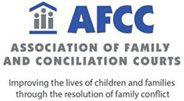

Divorce Processes
Mutual Consent Divorce
In Maryland and the District of Columbia couples may obtain an expeditious, final divorce by jointly filing a comprehensive agreement resolving all issues regarding the disposition of marital property and alimony, if any. In Maryland parents of minor children must also file a parenting plan addressing legal decision-making, residential custody and parenting time, as well as child support. In Montgomery County the Court may schedule a divorce hearing within 60 days of filing, and only one spouse is required to appear in court at the hearing. Courts will generally incorporate such agreements in the Judgment of Absolute Divorce, making them enforceable by contempt. This is the least costly and most amicable process to address the many issues that may arise following the divorce.
Contested Divorce
Recently both Maryland and the District of Columbia have liberalized judicial divorce proceedings by eliminating waiting periods to file in court.
Since a statutory change in 2023, Maryland permits either party to file for divorce within 6 months of a deliberate separation (including living ‘separate lives’ with the same house), or to file immediately by simply asserting ‘irreconcilable differences’ without the necessity to plead adultery, abandonment, excessive cruelty or other ‘fault grounds’ formerly required. Expeditious interim orders regarding child custody and support, alimony, exclusive use of the family home and attorneys’ fees are available under Maryland law. Maryland also abolished the status of ‘Limited Divorce’ which was sometimes used to obtain interim orders regarding child custody and support, alimony, and use and possession of the family home or automobile while preserving one spouse’s access to health insurance coverage, eligibility for Social Security benefits, or due to religious concerns. These remedies are all available in a suit for Absolute Divorce.
In early 2024 the District of Columbia eliminated the 12-month waiting period to file for an Absolute Divorce upon the simple assertion by one or both parties that they no longer wish to remain married, and for a Legal Separation upon at least one party’s assertion that they intend to pursue a separate life without obtaining a divorce. Either process provides for expeditious interim orders regarding child custody and support, alimony and exclusive use of the family home or any other residential dwelling unit. The amended statute also expressly permits courts to consider a history of physical, emotional or financial abuse by one party against the other in awarding alimony and dividing marital property regardless of title ownership.
While these changes may shorten the wait to file for divorce, parties continue to plead facts alleging adultery, abuse or other fault ground to obtain a more generous division of marital property or alimony, which doesn’t necessarily accelerate the trial or mitigate the parties’ legal expenses. Call me to discuss your specific circumstances to develop a litigation and settlement strategy that can achieve your desired outcome by a negotiated settlement.
Divorce Planning
Interim Separation Agreements
Cooperative divorcing couples may seek to formalize their respective financial responsibilities or co-parenting schedule during the separation and divorce planning period by a written Separation Agreement or a Consent Interim Order. Such agreements can be particularly useful in defining the parties’ rights and obligations where there is a disparity in income between the party with higher earnings and a stay-at-home parent, or where the dependent spouse or minor children have special needs. The parties may agree that the partner with significantly higher earnings will provide financial support and perhaps use and possession of the family home and automobiles to the parent with whom children primarily reside and/or financially dependent spouse. Such an agreement may be informal, and need not be entered as a court order, but it is prudent for the parties to enter into a comprehensive, enforceable written agreement drafted by a family attorney to ensure financial stability and to restrict dissipation of marital property.



















